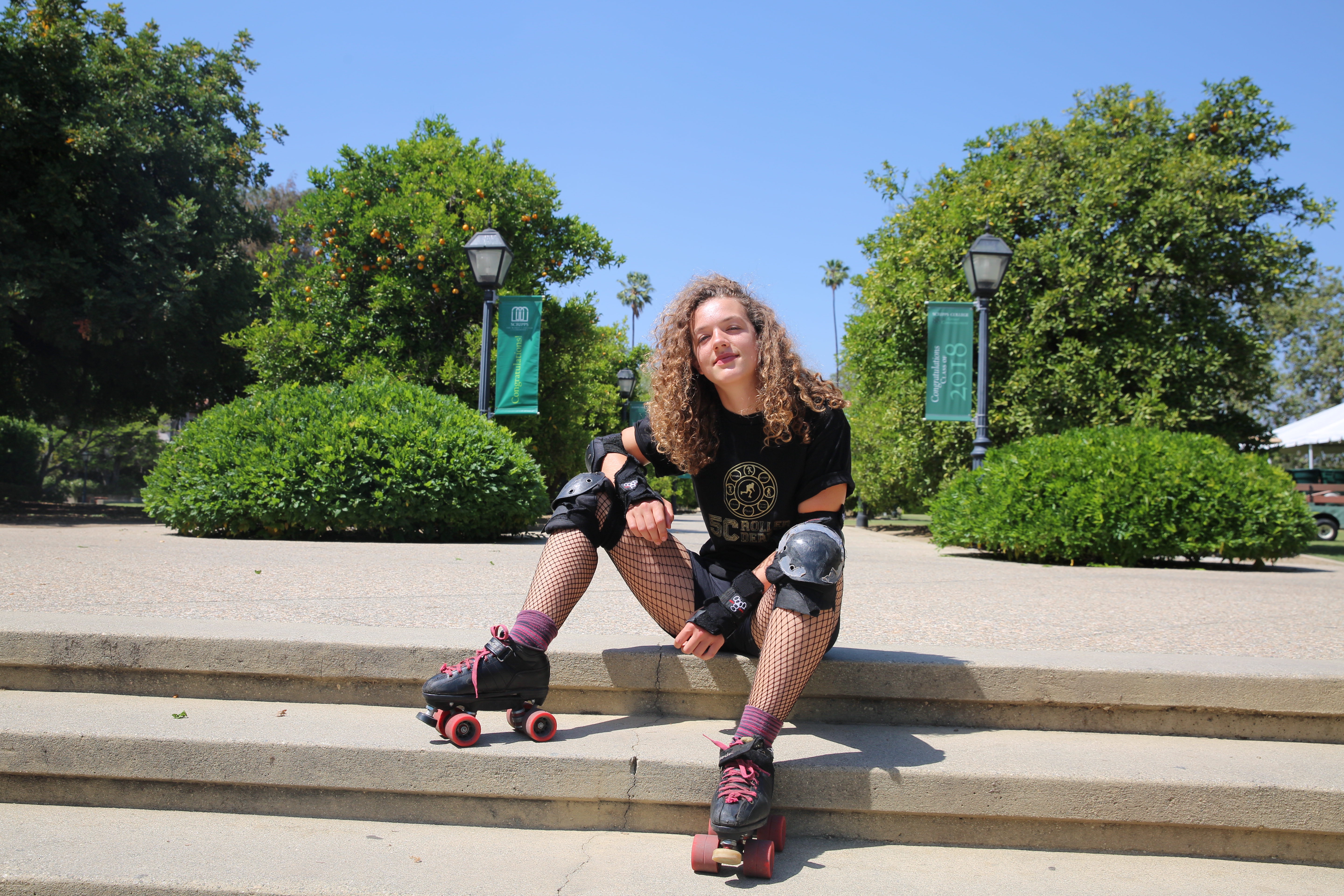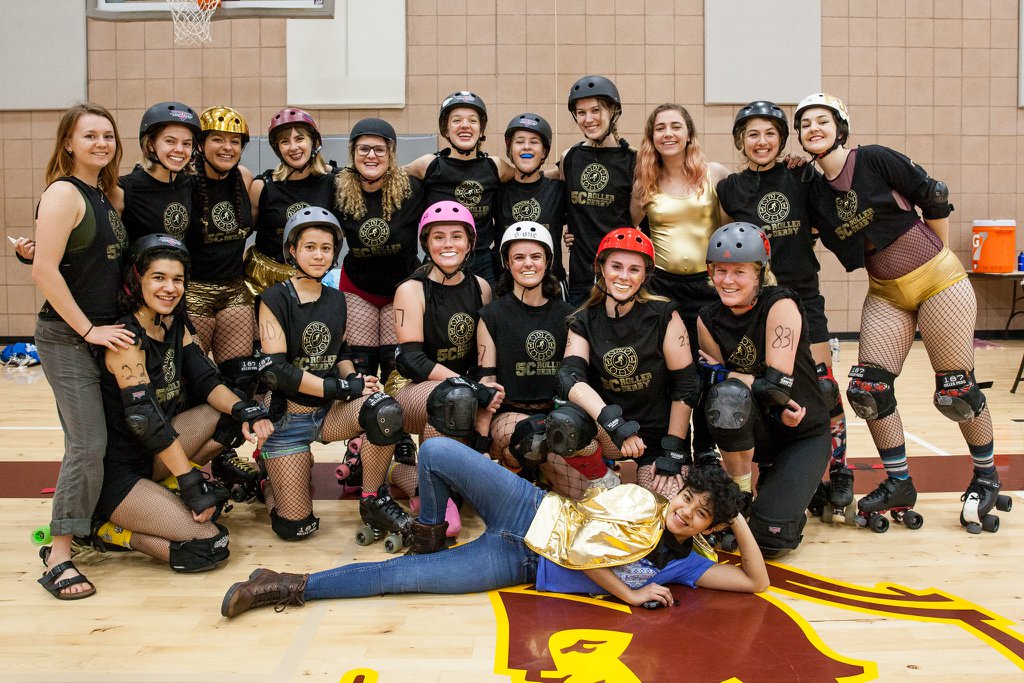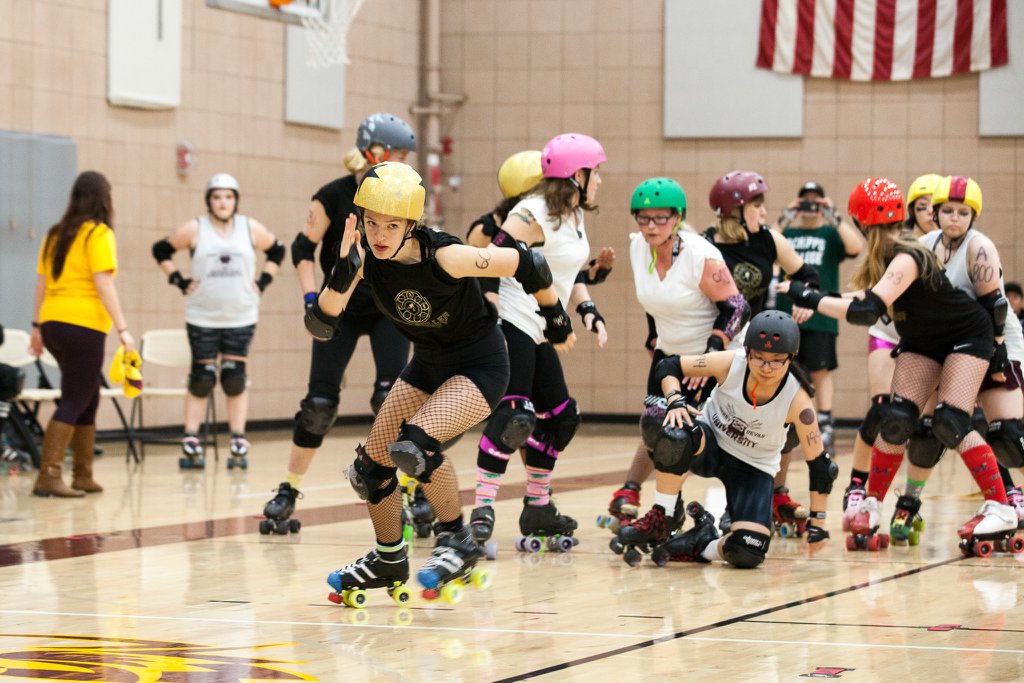
Carmen Abbe ’18, a human biology major from Seattle, has balanced her time at Scripps between taking science and humanities courses and playing on the roller derby team she founded as a first-year student. After graduation, she hopes to continue incorporating her passions; Abbe has her sights set on attending medical school, expanding on her thesis research, and engaging with the derby community in Seattle.
The 5C Women’s Roller Derby team, which began as a casual club with a few intermittent members, has grown into an official intramural 5C sports team, now 25 members strong. It is one of only four collegiate teams in the U.S. and regularly participates in monthly Inland Empire scrimmages. In 2018, the team attracted enough members to be able to host about against another team from Arizona State University. The event was the first-ever interstate, intercollegiate roller derby match.

Abbe founded the 5C Women’s Roller Derby club because she wanted to continue participating in the sport, which she took up in high school. She also believes roller derby is an empowering sport for women to participate in, as the intense physical contact in the rink emphasizes individuality, strength, and community.
“Everybody has different roller derby names. And people often wear crazy makeup, fishnets, or sparkly spandex to games, so it’s kind of this celebration of bodies and being really strong,” says Abbe, whose roller derby name is Bad Carma. “It’s also really accessible to all different body types and forms of athletic ability.”

When she wasn’t coaching her team or working at the Motley Coffeehouse, Carmen committed herself to her love of science and public health, majoring in human biology and working as a Peer Health Educator. She decided on a premed track her junior year, after returning from a study abroad program in Chile where she completed a community empowerment and traditional medicine public health program. Abbe is particularly interested in how doctors take patients’ social and cultural backgrounds into account during treatment. “I think being a good doctor involves knowing that kind of stuff,” Abbe says. “Now that I’m a premed student, I hope that’s the kind of doctor I can be.”
Abbe’s senior thesis examines data for a male contraceptive whose clinical trials were terminated early because of side effects and compares those results to the side effects many women experience taking FDA-approved contraceptives. Abbe said her results suggest that the “safety assessments on side effect risk aren’t really equitable across genders,” and she will be working with a doctor at the University of Washington over the summer to revise and publish her findings in an academic journal.
Reflecting on her college experience as graduation nears, Abbe says that her Scripps education has helped her to think more critically about the world around her. “The education I was immediately receiving from my classes and my peers here really encouraged me to question everything and question the societal norms that are imposed on myself, the world, and other people.” She adds: “It was an education I think other schools and spaces don’t always cultivate.”

